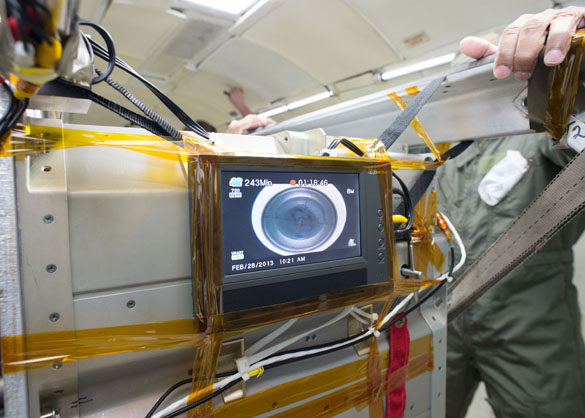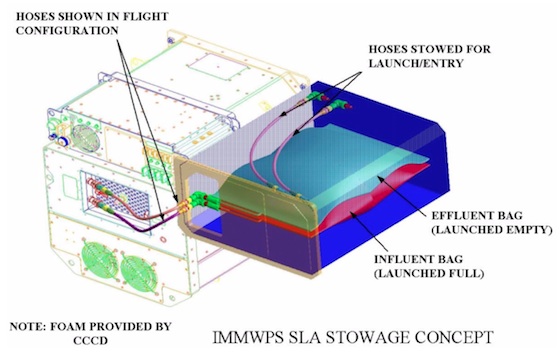Microgravity Multi-Phase Flow Experiment for Suborbital Testing (MFEST)
PI: Kathryn M. Hurlbert, NASA/Johnson Space Center
PI: Kathryn M. Hurlbert, NASA/Johnson Space Center

- TA02 In-Space Propulsion Technologies
- TA06 Human Health, Life Support and Habitation Systems
- TA07 Human Exploration Destination Systems
- TA14 Thermal Management Systems
Two-phase flow experimental studies at partial gravities have been very limited, and primarily conducted using special aircraft modified to fly parabolas. The typical flight profile is limited to an acceleration range of near-zero to approximately 1.8-g, with reduced gravity periods of only approximately 20 to 30 seconds during each parabolic maneuver. A suborbital flight would allow longer-duration, continuous operational testing with variable gravity over a wider range, for both the unique separator concept and two-phase flow design.
The MFEST would provide the first opportunity to operate through a representative full-mission profile using a suborbital vehicle, with exposure to and testing at variable gravity levels for a duration an order of magnitude longer than in specialized aircraft. Additionally, this experiment would identify any significant hardware issues and provide correction or recommendations for this type of design, including evaluation of the separator concept for space applications. The system’s Technical Re
The passive vortex separator concept was originally developed at Texas A&M University. The University provided a license to Advanced Cooling Technologies, Inc. (ACT), of Lancaster, Pennsylvania, to commercialize the subsequent momentum-driven vortex phase separator (MDVPS) technology. ACT specializes in advanced thermal technology development and custom thermal product manufacturing, and intends to apply the MDVPS technology to products for aerospace, military, commercial, and government researc
The experiment was originally designed for the Space Shuttle mid-deck, but was never flown due to mass, crew time, and other mission limitations. For the suborbital flight opportunity, the primary purpose of the test program would be to verify functional operations of the flow system and unique separator for a relatively long duration with variable gravity, in support of future space vehicle designs and missions.
The experiment design will require minimal refurbishment and/or modifications. For one, the separator top or bottom will likely be replaced with Plexiglass to allow visualization of the separator flow. Also, a camera will collect the visual data from pre-flight through post-flight phases to assess the separator core stability. Other data will be collected as designed in the original experiment (temperatures, pressures, etc). Experiment procedures will duplicate existing protocols as closely as possible, to attempt to operate the system as originally intended, with the exception that it will be turned on prior to the flight and operate continuously without human interaction.

Technology Details
-
Selection DateAFO2 (Oct 2011)
-
Program StatusActive
- 4 Parabolic
- 2 sRLV
Development Team
-
PIKathryn M. Hurlbert
-
Organization
-
SponsorNASA
-
PartnersSpace Engineering Research Center (SERC)
Advanced Cooling Technologies, Inc. (expected) -
More Information

